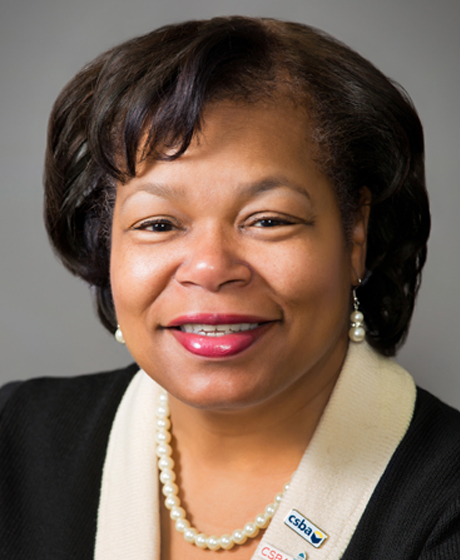by Emma Turner
The funding challenges facing California public schools are many and varied, and so are the ways in which CSBA is addressing them. By now, you’re aware of CSBA’s initiative to secure Full and Fair Funding for K-12 public schools by raising per-pupil funding to the national average by 2020 and to the average of the top 10 states by 2025. This transformative effort would restore school funding to the levels of California’s Golden Era, when this state’s schools were considered among America’s best. It’s a major undertaking, but just one of several that could measurably improve school district finances in 2019 and beyond.
On March 12, a record-setting group of more than 250 board members from across the state descended on the Capitol for CSBA’s Legislative Action Day. The attendees were in Sacramento to advance CSBA’s legislative agenda, an ambitious slate of bills that would provide schools with financial relief and additional resources:
Assembly Bill 39 (Muratsuchi, D-Rolling Hills)
AB 39 would increase the Local Control Funding Formula base grant targets to equal the national average in per-pupil funding. Funding for the bill includes any future anticipated growth in Proposition 98 and specified appropriations for the Local Control Funding Formula.
AB 760 (Cooper, D-Sacramento)
AB 760 would reinstate an annual cost-of-living adjustment for home-to-school transportation to address cost increases in areas including personnel, insurance and fuel. The bill would also dedicate an amount equal to the annual COLA (3.46 percent in the current budget proposal) as part of a long process to equalize reimbursement rates. The equalization rate in no case would be less than 1 percent of the state’s budget for the home-to-school transportation program.
AB 428 (Medina, O’Donnell et al.)
AB 428 would remedy several long-standing deficiencies in California’s special education finance system. Among other things, AB 428 would equalize base special education funding rates (pursuant to AB 602) to the 95th percentile, establish a funding formula within AB 602 for programs serving preschoolers with disabilities and create a high-cost service allowance to provide additional funding for those with significant high-cost disabilities.
AB 1303 (O’Donnell, D-Long Beach)
AB 1303 would redirect the K-12 portion of funding for Career Technical Education from the California Community College Chancellor’s Office to the California Department of Education in the effort to ensure that Career Technical Education remains a K-12-administered program. The bill would also make programmatic changes to encourage greater participation in CTE and appropriates $450 million to the K-12 program.

CSBA President Emma Turner and association CEO & Executive Director Vernon Billy recently met with State Superintendent of Public Instruction Tony Thurmond to discuss pressing K-12 public school issues and to inform Thurmond of CSBA’s advocacy goals and legislative priorities.
AB 751 (O’Donnell, D-Long Beach)
AB 751 would allow local educational agencies the flexibility to administer an alternate assessment (such as the SAT or ACT) for 11th-grade students in place of the Smarter Balanced Summative Test, if the alternate test is approved by the State Superintendent of Public Instruction. Administering alternate assessments during the school day removes a barrier to college attendance for many students who may not otherwise have access to these exams or may not take them on their own.
Newly released data from Education Week shows that only 15 U.S. states will administer Smarter Balanced or similar exams in 2019, while 32 states use an alternate assessment.
Senate Constitutional Amendment 5 (Hill, D-San Mateo & Allen, D-Santa Monica)
SCA 5 proposes to amend the California Constitution to reduce the required voter-approval threshold to pass school district parcel taxes from two-thirds to 55 percent.
“In a state with woefully inadequate support of public schools — currently we’re ranked 41st nationally in per-student funding — it makes no sense to place arbitrary restrictions on local communities seeking to provide needed resources for their students.”
As I told EdSource for its March 17 article on SC5, “A 55-percent threshold for parcel tax passage represents a more equitable approach to supplemental funding for schools. The current two-thirds standard hinders many middle- and low-income districts from improving school conditions and student outcomes. In a state with woefully inadequate support of public schools — currently we’re ranked 41st nationally in per-student funding — it makes no sense to place arbitrary restrictions on local communities seeking to provide needed resources for their students. Reducing the parcel tax threshold to 55 percent dramatically increases the likelihood that less affluent districts and districts with high proportions of African-American and Latino students will pass a parcel tax. It nearly doubles the prospects of parcel tax passage among all districts statewide. Given this, a constitutional amendment lowering the parcel tax threshold represents a victory for equity and for California’s 6.2 million students.”
CSBA is pursuing victories for California students on every front and from every angle. I urge all CSBA members to lobby their representatives and rally their communities in support of this critically important agenda. The grand goal is Full and Fair Funding, but there are many opportunities along the way, and we must take advantage of all of them as we work to restore the glory of California’s public education system.
Dr. Emma Turner is La Mesa-Spring Valley School District Board President and President of the California School Boards Association. This column originally was published in California School News.




